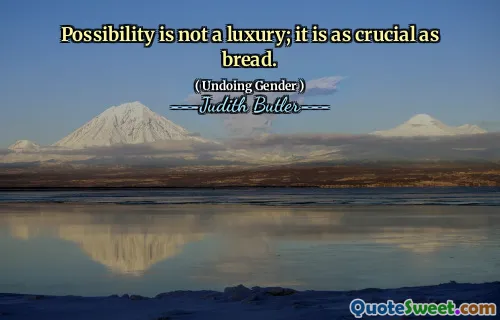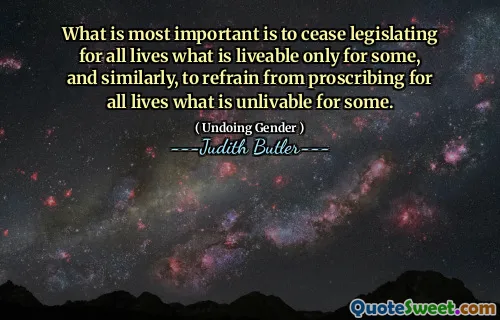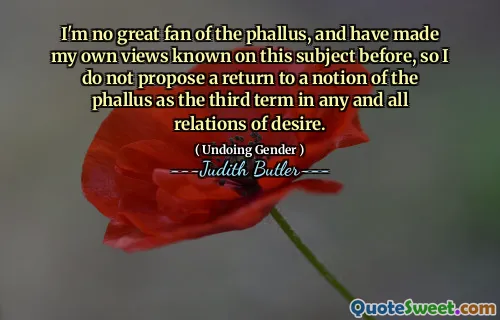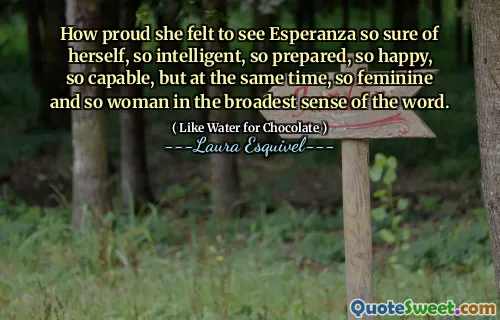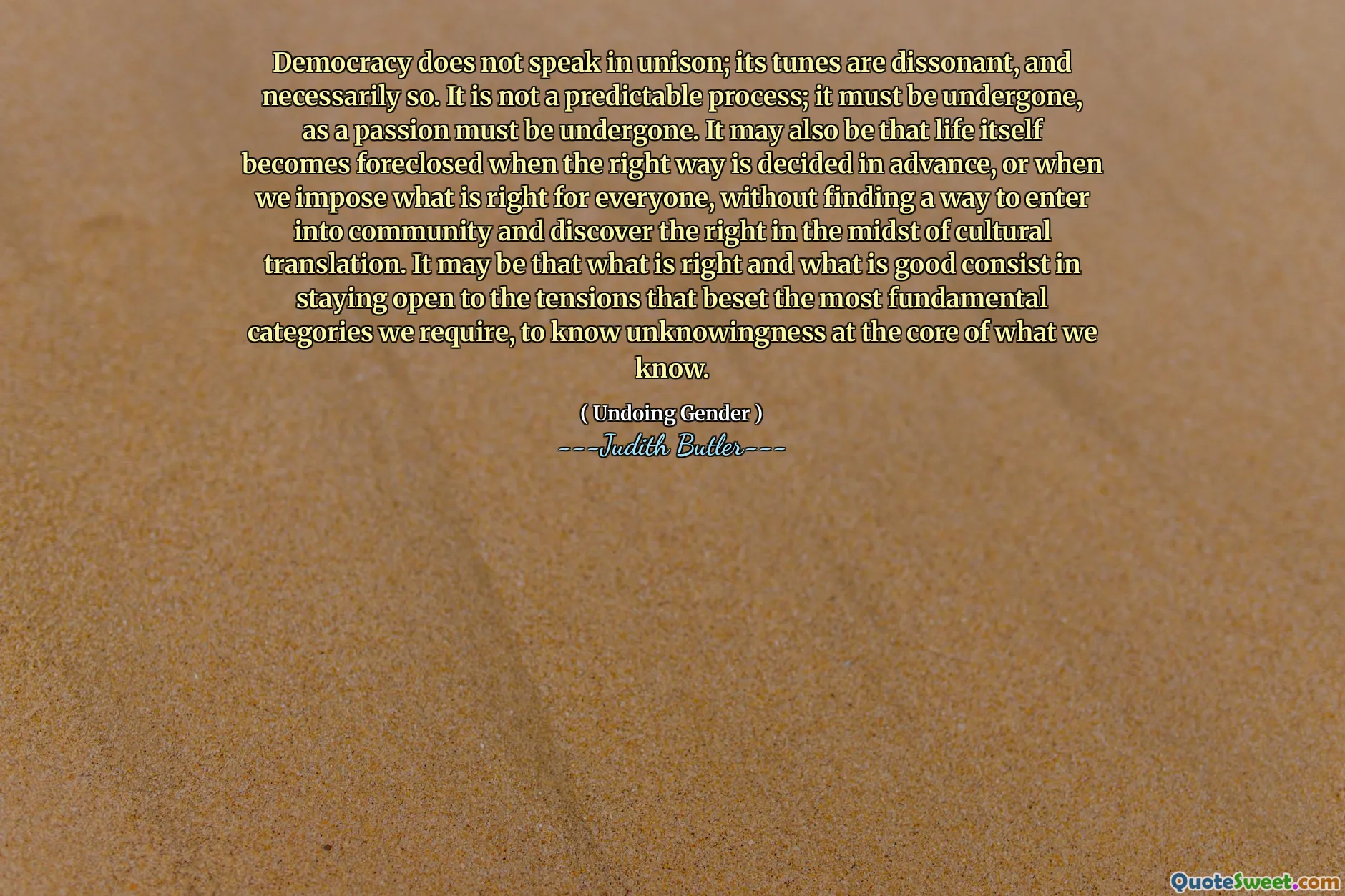
Democracy does not speak in unison; its tunes are dissonant, and necessarily so. It is not a predictable process; it must be undergone, as a passion must be undergone. It may also be that life itself becomes foreclosed when the right way is decided in advance, or when we impose what is right for everyone, without finding a way to enter into community and discover the right in the midst of cultural translation. It may be that what is right and what is good consist in staying open to the tensions that beset the most fundamental categories we require, to know unknowingness at the core of what we know.
Judith Butler highlights the complex and often discordant nature of democracy, emphasizing that it does not operate in a uniform manner. Instead, it requires an active engagement, much like a passionate experience that cannot be easily predicted. When society rushes to define what is right in a rigid way, it risks closing off the possibilities of life and communal understanding, preventing diverse voices from contributing to the discourse.
Butler suggests that true progress lies in embracing the inherent tensions within our foundational beliefs. By remaining open to these tensions and allowing cultural interpretations to shape our understanding of right and wrong, we acknowledge that knowledge itself has limits. This approach encourages a more inclusive dialogue that values different perspectives, rather than imposing a singular viewpoint that may not resonate with everyone.
